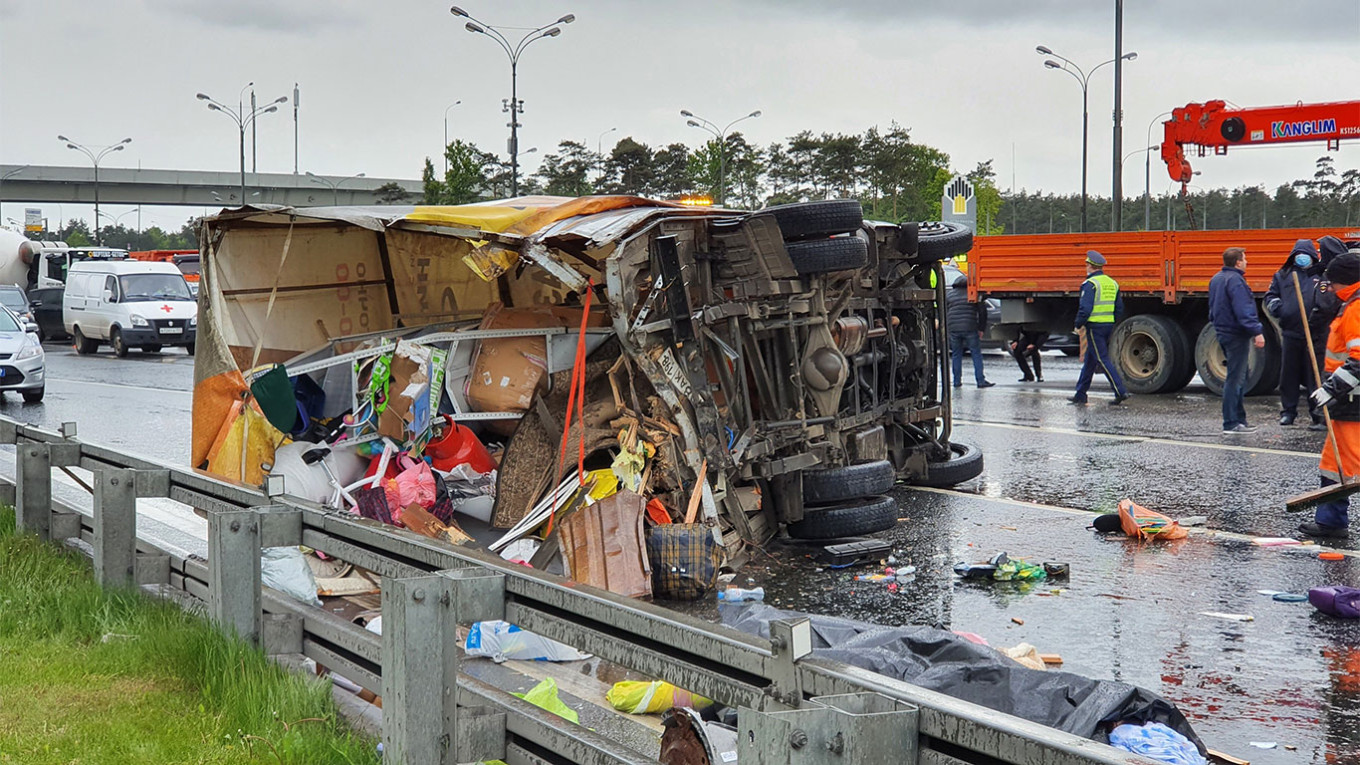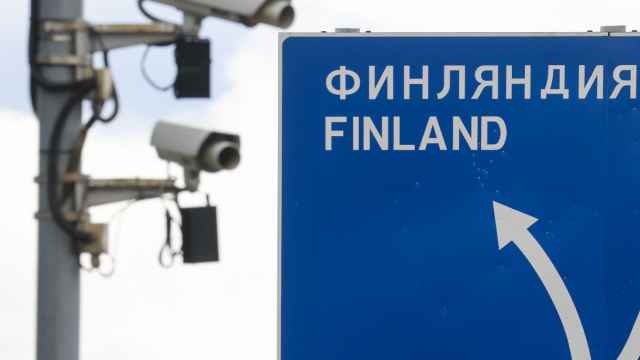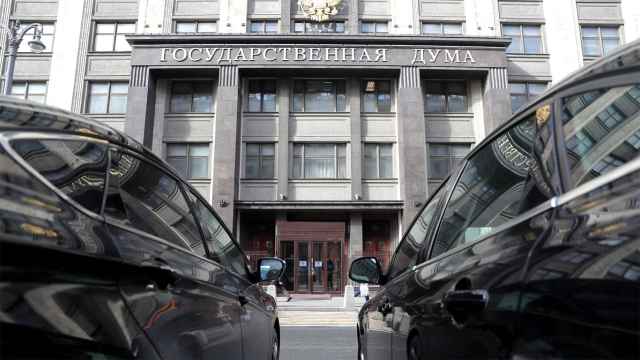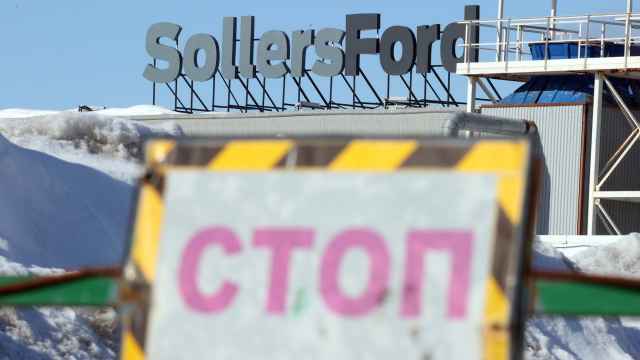Russian police ascribed an increase in road accidents to Western sanctions that have shifted traffic flows toward ill-equipped infrastructure in the country’s east, the Kommersant business daily reported Thursday.
The Russian Interior Ministry’s road safety research center said in its 2022 report that some highway sections in eastern Russia saw upticks in accidents of as much as 80%. Western highways saw fewer traffic accidents, it added.
With Western destinations cut off as part of to economic penalties for Russia’s invasion of Ukraine, traffic redistribution placed a heavy toll on roads to Turkey, Kazakhstan, Armenia, Azerbaijan, Georgia and China.
“The infrastructure was not ready for such changes and as a result, the main traffic arteries were overloaded and vehicle miles traveled increased,” the report stated.
The surge came despite Russia’s car fleet increasing by only 0.5% compared with annual growth of up to 1.9% in previous years.
The Interior Ministry’s research center warned that aging cars, a 70% increase in used vehicle imports and bootleg auto part shortages would further deteriorate road safety in Russia.
Russia last year allocated 13 trillion rubles ($160 billion) toward road construction through 2027.
Russia’s automotive industry has been the sector hardest-hit by Western sanctions imposed over the invasion of Ukraine.
A Message from The Moscow Times:
Dear readers,
We are facing unprecedented challenges. Russia's Prosecutor General's Office has designated The Moscow Times as an "undesirable" organization, criminalizing our work and putting our staff at risk of prosecution. This follows our earlier unjust labeling as a "foreign agent."
These actions are direct attempts to silence independent journalism in Russia. The authorities claim our work "discredits the decisions of the Russian leadership." We see things differently: we strive to provide accurate, unbiased reporting on Russia.
We, the journalists of The Moscow Times, refuse to be silenced. But to continue our work, we need your help.
Your support, no matter how small, makes a world of difference. If you can, please support us monthly starting from just $2. It's quick to set up, and every contribution makes a significant impact.
By supporting The Moscow Times, you're defending open, independent journalism in the face of repression. Thank you for standing with us.
Remind me later.






